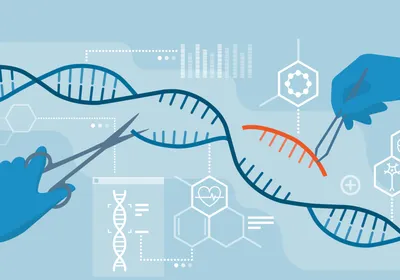 FLICKR, US NAVYWhen Popular Science announced it was pulling its commenting system, few could argue with the staff’s impulse to reduce the negative impacts of inappropriate dialogue that detracts from scientific conversation. We at The Scientist have had a number of just-plain-awful comments posted to our site, too. But comments like this one (wctopp, July 23), on our report on two separate teams working to identify blood-based biomarkers for Alzheimer’s disease, remind us of the good that article comments can bring. Reader wctopp’s suggestion—that the groups partner up—has inspired a potential collaboration between Simon Lovestone of King’s College London and University of Oxford and Howard Federoff of the Georgetown University Medical Center. On Twitter, the researchers have expressed interest in working together to combine the two approaches to improve their ability to predict the onset of dementia.
FLICKR, US NAVYWhen Popular Science announced it was pulling its commenting system, few could argue with the staff’s impulse to reduce the negative impacts of inappropriate dialogue that detracts from scientific conversation. We at The Scientist have had a number of just-plain-awful comments posted to our site, too. But comments like this one (wctopp, July 23), on our report on two separate teams working to identify blood-based biomarkers for Alzheimer’s disease, remind us of the good that article comments can bring. Reader wctopp’s suggestion—that the groups partner up—has inspired a potential collaboration between Simon Lovestone of King’s College London and University of Oxford and Howard Federoff of the Georgetown University Medical Center. On Twitter, the researchers have expressed interest in working together to combine the two approaches to improve their ability to predict the onset of dementia.
 WIKIMEDIA, C. GOLDSMITHTemple University’s Kamel Khalili and colleagues have used the CRISPR/Cas9 genome-editing technique to successfully remove latent HIV from the host genome in human cell lines. The team’s work was published in PNAS this week (July 21).
WIKIMEDIA, C. GOLDSMITHTemple University’s Kamel Khalili and colleagues have used the CRISPR/Cas9 genome-editing technique to successfully remove latent HIV from the host genome in human cell lines. The team’s work was published in PNAS this week (July 21).
“It was a little bit . . . mind-boggling how this system really can identify a single copy of the virus in a chromosome, which is highly packed DNA, and exactly cleave that region,” said Khalili.
Daniel Stone, a staff scientist at the Fred Hutchinson Cancer Research Center in Seattle, Washington, noted that “the approach has promise.” However, he added, “the next question is, how do you deliver this?”
 ROD DILLONThe sand fly gut microbiome can affect the insect’s capacity for carrying Leishmania, the agent of the skin-ulcer-causing disease in humans, Rod Dillon and colleagues from Lancaster University have shown. Their work was published in Parasites & Vectors this week (July 23).
ROD DILLONThe sand fly gut microbiome can affect the insect’s capacity for carrying Leishmania, the agent of the skin-ulcer-causing disease in humans, Rod Dillon and colleagues from Lancaster University have shown. Their work was published in Parasites & Vectors this week (July 23).
“[The researchers] show that if they ...





















